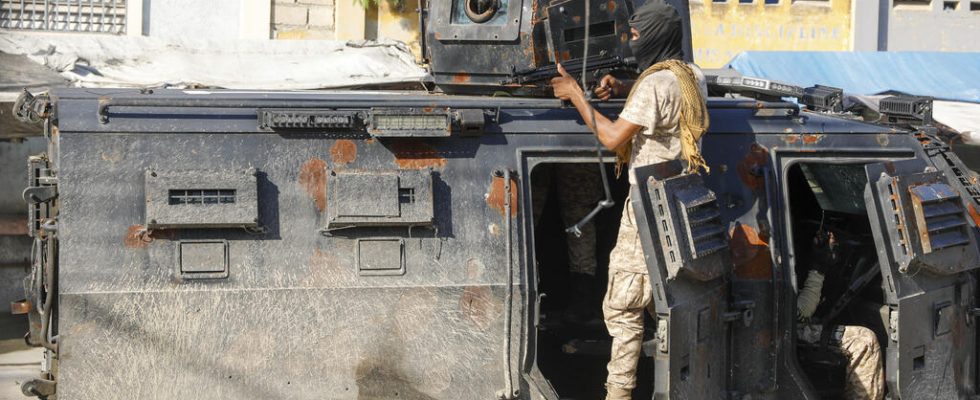A state of emergency has been declared in Haiti, after a particularly violent weekend in the capital Port-au-Prince and its surroundings. Armed gangs attacked two prisons. Thousands of prisoners escaped; at least ten people died. A curfew is established to regain control of the capital Port-au-Prince. This situation must last at least 72 hours.
2 mins
The spiral of violence continues in Haiti. A state of emergency and a curfew were announced after this weekend’s violence across the entire western department for a renewable period of 72 hours. The curfew is established in this same territory between 6 p.m. and 5 a.m. local Monday, Tuesday and Wednesday, as well as Sunday from 8 p.m. local to 5 a.m., indicates a government press release.
It was the Minister of Economy and Finance, Patrick Michel Boisvert, who signed the government press release in the absence of Prime Minister Ariel Henry, who was traveling to Kenya. This indicates that these announcements come following the deterioration of security in the country, particularly in Port-au-Prince, “ characterized by increasingly violent criminal acts perpetrated by armed gangs ”, as well as taking into account “ the escape of dangerous prisoners ”, actions putting “ endangering national security » according to the government.
This weekend, in fact, around ten people died and thousands of inmates left the capital’s main prison, during an operation blamed on armed gangs.
Read alsoHaiti: after an assault by armed gangs, prisoners escape from the country’s main penitentiary
In this climate of violence, healthcare services are trying, as best they can, to continue operating. This is the case of the Tabarre hospital, managed by the organization Médecins sans frontières, in Port-au-Prince. The establishment is welcoming more and more injured people in recent days: “ All the patients who arrive have a lot of psychological trauma. We even receive patients in our hospitals who are not from our technical platform because they have no place to go. And last night, we had pregnant women who showed up at the hospital and needed to give birth. They have no place to go, so they show up at our house », Notes Mumuza Muhindo, head of mission for MSF in Haiti, responsible for the Tabarre hospital.
“ The other impact is concerns about medications. Cargo ships are blocked at the port. We can’t access it. We hope that, quickly, there will be a lull which would allow us to access these medicines, because otherwise we fear a shortage, which will disrupt our ability to respond to free care for the population. The number of beneficiaries is increasing day by day », specifies Mumuza Muhindo.
